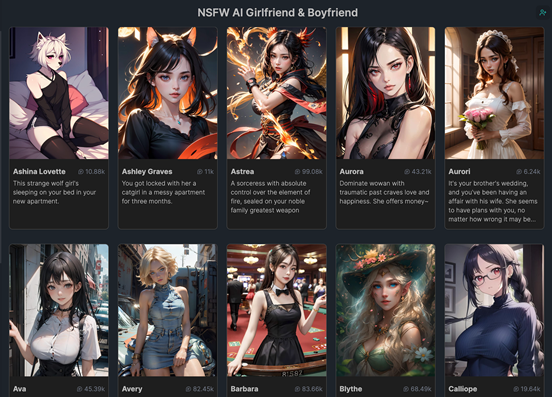Navigating the Complex Terrain of Consent
One of the most pressing moral questions regarding AI-generated adult content revolves around the issue of consent. AI's ability to create highly realistic and customizable content raises concerns about the use of individuals' likenesses without their permission. For instance, a recent survey revealed that 78% of respondents felt uneasy about the possibility of their images being used in adult content without their explicit consent. This discomfort highlights the need for clear ethical guidelines and robust consent frameworks to govern the use of AI in creating such content.
Privacy Concerns and Data Security
With AI's capability to generate detailed and personalized adult content, privacy emerges as a critical concern. There is a substantial risk associated with data mishandling or breaches, which could expose sensitive personal preferences. In-depth data security measures are essential, not only to protect users from unauthorized data exploitation but also to maintain trust. Users must have confidence that their interactions with adult content, especially in platforms utilizing "ai hentai chat", remain confidential and secure. Ensuring this privacy is a cornerstone of ethical AI use, as exemplified by initiatives on platforms like ai hentai chat, which prioritize secure user experiences.

The Problem of Dehumanization
AI-generated adult content also presents a risk of dehumanization. By creating and manipulating images that do not represent real human emotions or experiences, there is a potential to reduce human intimacy to mere algorithms, which can have broader societal implications. This dehumanization can skew perceptions of sexual norms and expectations, impacting real-life relationships and societal views on sexuality. Such implications necessitate a balance between innovation and the maintenance of healthy societal standards.
Potential for Exploitation
The use of AI in adult content creation can inadvertently lead to exploitation, particularly if unscrupulous creators use the technology to produce illegal or harmful material. The technology's ability to generate content that may include non-consensual scenarios or underage figures, albeit artificially created, poses significant legal and ethical risks. Vigilant monitoring and strict regulations are necessary to prevent AI from being exploited in ways that could harm individuals or groups.
Ethical Development and Implementation
The development and implementation of AI in the adult content industry must be guided by ethical principles that prioritize human dignity and respect. Developers and distributors need to adopt transparent practices that clearly inform users about how AI is used and the nature of the content being consumed. Moreover, there should be mechanisms in place to allow users to control or opt out of AI interactions, providing a layer of user agency that respects individual preferences and boundaries.
Conclusion: A Call for Ethical Frameworks
The moral implications of AI-generated adult content are significant and multifaceted. As this technology continues to evolve and become more integrated into the adult industry, it is imperative to develop and enforce ethical frameworks that address these concerns. Protecting privacy, ensuring consent, preventing exploitation, and managing the societal impact are critical areas that require ongoing attention from technologists, ethicists, and policymakers. Only through conscientious and deliberate action can the industry hope to harness the benefits of AI while mitigating its potential harms.